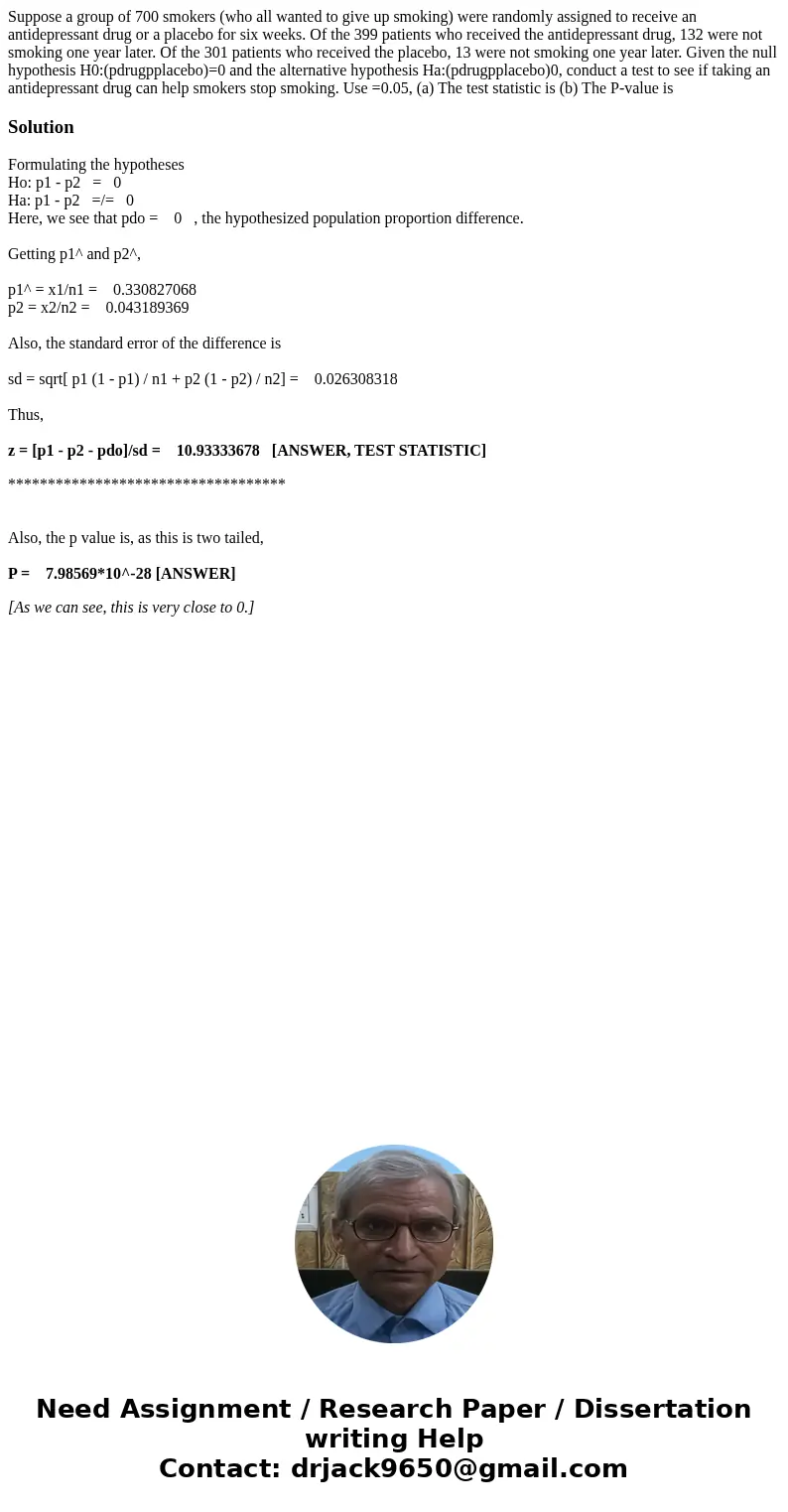Suppose a group of 700 smokers who all wanted to give up smo
Suppose a group of 700 smokers (who all wanted to give up smoking) were randomly assigned to receive an antidepressant drug or a placebo for six weeks. Of the 399 patients who received the antidepressant drug, 132 were not smoking one year later. Of the 301 patients who received the placebo, 13 were not smoking one year later. Given the null hypothesis H0:(pdrugpplacebo)=0 and the alternative hypothesis Ha:(pdrugpplacebo)0, conduct a test to see if taking an antidepressant drug can help smokers stop smoking. Use =0.05, (a) The test statistic is (b) The P-value is
Solution
Formulating the hypotheses
Ho: p1 - p2 = 0
Ha: p1 - p2 =/= 0
Here, we see that pdo = 0 , the hypothesized population proportion difference.
Getting p1^ and p2^,
p1^ = x1/n1 = 0.330827068
p2 = x2/n2 = 0.043189369
Also, the standard error of the difference is
sd = sqrt[ p1 (1 - p1) / n1 + p2 (1 - p2) / n2] = 0.026308318
Thus,
z = [p1 - p2 - pdo]/sd = 10.93333678 [ANSWER, TEST STATISTIC]
***********************************
Also, the p value is, as this is two tailed,
P = 7.98569*10^-28 [ANSWER]
[As we can see, this is very close to 0.]

 Homework Sourse
Homework Sourse